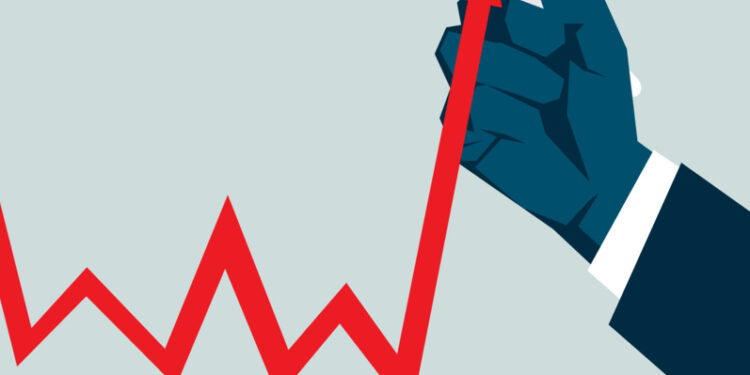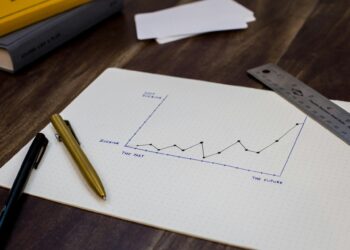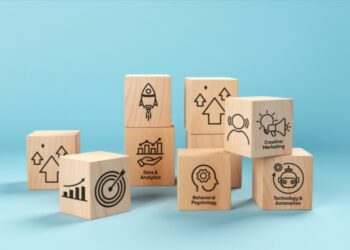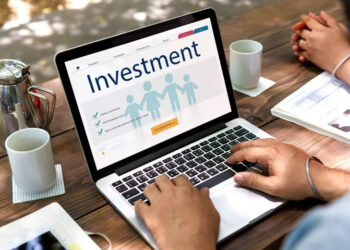Inflation – we hear this term all the time, but how much do we really understand about it? Prices rise, groceries cost more, and suddenly, your paycheck doesn’t seem to stretch as far. But why does this happen, and how does inflation truly affect us?
If you’ve been left wondering what inflation really means and how it shapes your day-to-day life, you’re not alone. This blog breaks it all down—from understanding what inflation is to examining the trends, causes, and what it means for your budget and financial future.
What Is Inflation?
At its core, inflation refers to the general increase in prices of goods and services over time, leading to a decrease in the purchasing power of money. What this means for you is simple—over time, every dollar you have buys a little bit less.
To illustrate, imagine you could buy a loaf of bread for $1 twenty years ago. Today, that same loaf might cost $2 due to inflation. The goods haven’t fundamentally changed, but the value of money has shifted.
Economists measure inflation using indexes like the Consumer Price Index (CPI), which tracks changes in the average cost of a basket of goods and services, such as food, housing, clothing, and energy. The CPI helps us understand whether the cost of living is rising and by how much.
The Two Types of Inflation
- Cost-Push Inflation:
This occurs when the costs of production rise—think raw materials or labor costs—which forces businesses to increase their prices to maintain profitability. For example, if fuel prices spike, transportation costs go up, which can lead to higher pricing for consumer goods. - Demand-Pull Inflation:
This happens when demand for goods and services exceeds supply. If everyone wants the latest tech gadget and there aren’t enough available, the company raises the price because they know people are willing to pay more to get their hands on it.
Why Does Inflation Happen?
Inflation isn’t random—it has underlying causes. Here are the key drivers:
1. Economic Growth
Moderate inflation is often the result of a growing economy. When wages rise and people have more disposable income, increased spending pushes demand higher, which in turn can lead to rising prices.
2. Money Supply
When too much money is injected into an economy—such as during a stimulus event—it can reduce the value of money. More money in circulation chasing the same amount of goods leads to higher prices.
3. Global Factors
Global events such as oil shocks, supply chain disruptions, or conflict zones can significantly impact inflation. For instance, bottlenecks in shipping during the COVID-19 pandemic drove supply down, increasing the cost of goods.
4. Government Policies
Policy decisions, like altering interest rates or taxation, influence inflation levels. The Federal Reserve, for instance, may adjust interest rates to curb high inflation by slowing consumer spending.
How Is Inflation Measured?
Understanding how inflation is measured can give you clarity on its real-world impact:
- Consumer Price Index (CPI):
Measures the average change in prices for household goods. - Producer Price Index (PPI):
Looks at price changes from the perspective of businesses and producers. - Core Inflation Rate:
Excludes food and energy prices, which are volatile, to provide a clearer picture of underlying inflation trends.
By paying attention to these metrics, economists can identify patterns and policymakers can decide how to respond.
Inflation Trends and Historical Patterns
Inflation trends often reflect the state of the economy—and history is full of lessons that show its fluctuations:
- The 1970s Energy Crisis:
Inflation soared due to oil shortages, causing skyrocketing prices and “stagflation,” where inflation and unemployment rose together. - The 2008 Financial Crisis:
Inflation dropped significantly as the economy contracted, showing that inflation doesn’t always mean rising costs. - Post-COVID Recovery:
The world is currently experiencing inflated prices due to supply-chain disruptions, increasing energy demands, and stimulus-driven spending.
It’s these trends that help experts assess what potential challenges or opportunities lie ahead.
How Does Inflation Impact Your Life?
For everyday Americans, inflation affects almost every aspect of life, including:
1. Cost of Living
You’ll notice rising prices most in everyday essentials—groceries, gas, rent, and utilities. If your wages don’t rise at the same rate as inflation, your purchasing power decreases, making it harder to save or spend on non-essentials.
2. Savings and Investments
Inflation erodes the value of money over time. For example, if you keep $100 in a savings account with zero interest, that money will be worth less in the future when adjusting for inflation. To combat this, many people turn to investments like stocks or inflation-protected bonds.
3. Loan Payments
If inflation rises, so too can interest rates. While this may benefit those with fixed-rate loans (like mortgages), it can make variable-rate loans and credit card debt much more expensive.
4. Job Market
Certain industries see salary increases during inflationary periods—such as tech or healthcare—while others may lag behind. This can widen the salary gap between sectors.
How to Protect Yourself Against Inflation
You can’t stop inflation, but you can protect your finances by managing your money smarter. Here are some tips:
- Budget for Changes:
Monitor your spending habits and focus on priorities. You may need to cut down on non-essentials if prices rise. - Invest Wisely:
Look for investment options that typically outpace inflation, such as stocks or real estate. Consider Treasury Inflation-Protected Securities (TIPS) for safer bet options. - Increase Your Income:
Upskilling or pursuing a promotion could help offset rising costs and keep your earnings competitive. - Avoid High-Interest Debt:
Pay off debt faster to avoid escalating interest charges as rates rise with inflation.
Understanding Inflation Empowers You
Inflation is a natural part of any economy, but understanding its trends, causes, and impacts can help you make better financial decisions. Whether it’s budgeting smarter, investing wisely, or staying informed on economic policies, you have tools at your disposal to minimize its negative effects.
By taking practical steps now, you can maintain control over your financial future—even during periods of high inflation.




















